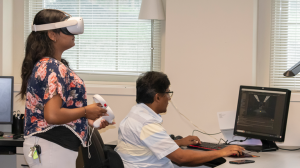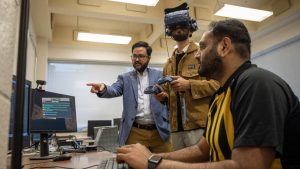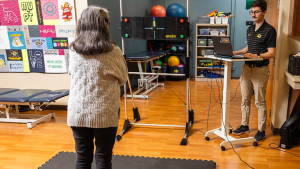
April 25, 2025
MU Microelectronics Training Program brings in industry professionals
Engineering professionals from Missouri attend the MU Microelectronics Training Program for skills development.

April 22, 2025
Student research shines at Show Me Research Week
The following seven engineering students received awards recognizing work in their respective fields.

April 11, 2025
Mizzou Engineers drive advances in next-generation technologies
The PhD students’ research opens a path toward more robust transistors for space applications and other extreme environments.

April 9, 2025
Graduate and professional students drive innovation and impact at Mizzou
Tigers share what it’s like to pursue advanced degrees at Mizzou, now ranked 15th among flagship universities for graduate education.

April 9, 2025
Mizzou Engineer earns Goldwater Scholarship
Undergraduate research has proved to be an invaluable experience for computer science and mathematics major Miles Farmer.

April 8, 2025
Exposing the security and privacy risks posed by incorporating AI in XR
Advances in AI are escalating the arms race between cyberattackers and defenders.

March 13, 2025
Can AI help detect cognitive impairment?
Mizzou researchers create a portable system that uses artificial intelligence to spot cognitive impairment.

Feb. 25, 2025
One step ahead of cyber attackers
A new cybersecurity framework developed by Mizzou Engineering researchers can predict cyberattacks on smart grids with nearly 92% accuracy.

Feb. 7, 2025
Mizzou junior earns distinction for research on power grid reliability and security
Benjamin Peter received an honorable mention from the Computing Research Association.

Jan. 29, 2025
Mizzou Engineers advance cybersecurity on the battlefield
A new AI-driven framework helps determine what to do when drones lose connectivity.